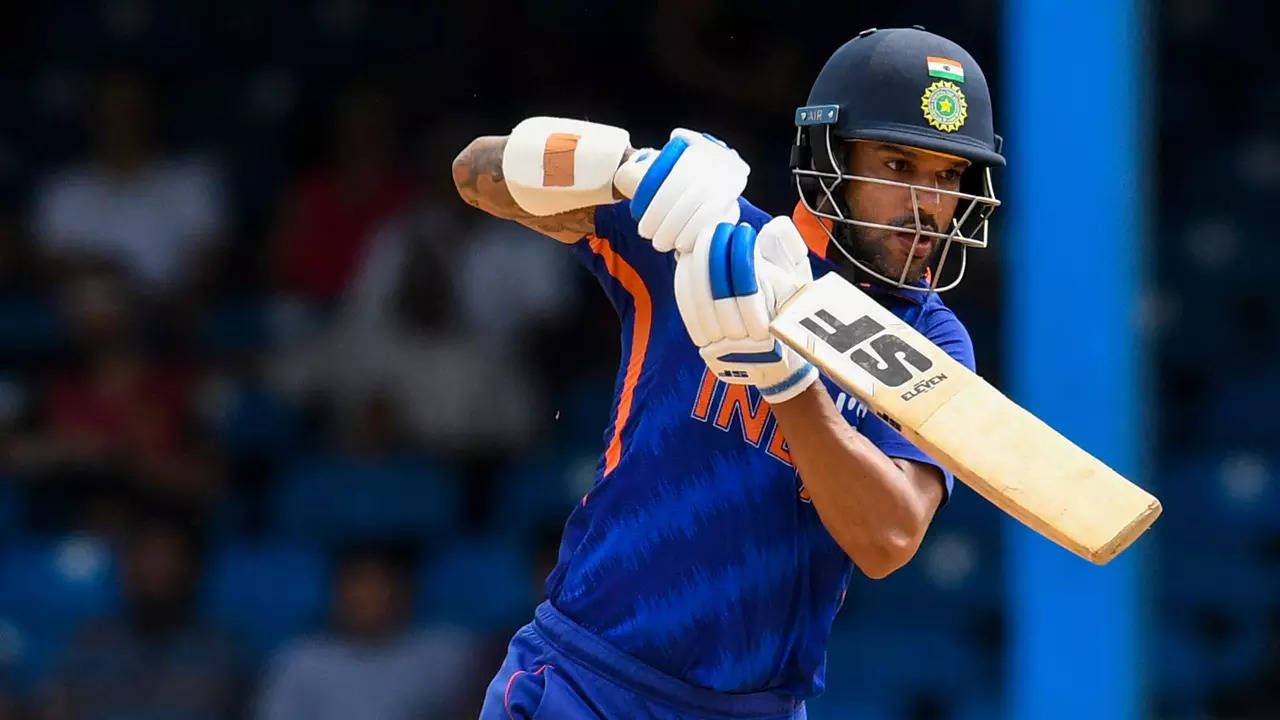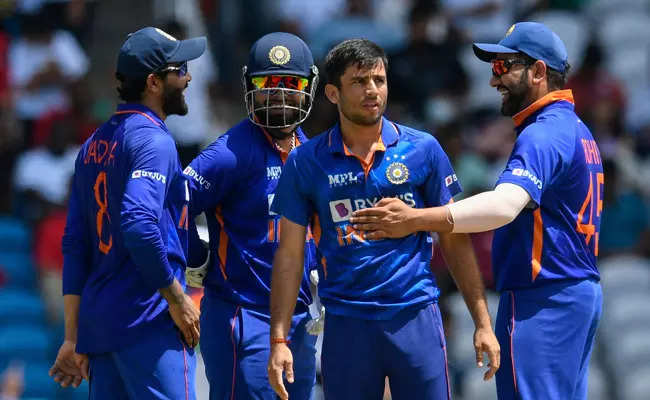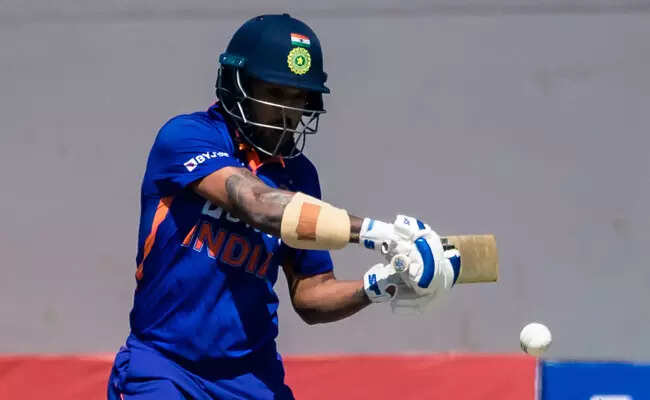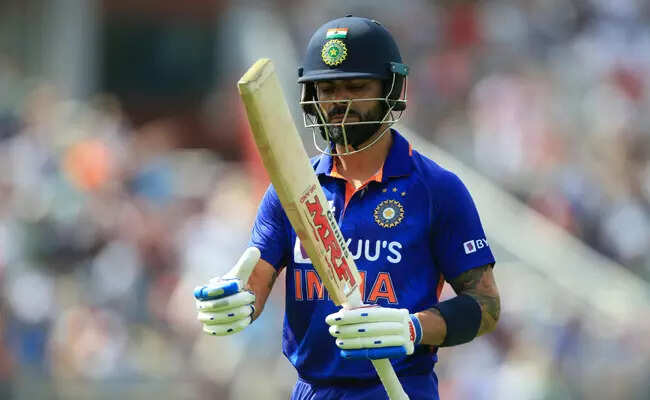
As the business of cricket grows so will the volume of international cricket. It's a no-brainer.
The ICC released the Future Tours Programme (FTP) for the 2023-2027 cycle on Wednesday and the numbers show that as many as 777 international matches will be played by the 12 ICC full members. That's 83 matches more than the current cycle (694 matches).
As the volume of cricket grows one trend that cannot be questioned anymore is the emergence and now domination of T20 cricket. Take India's schedule alone for the next FTP cycle - 38 Tests, 42 ODIs and as many as 61 T20Is. T20 cricket is not just the future anymore, it's also very much the present. It's no surprise then that the ICC hosts a men's and women's T20 World Cup every two years.
To cope with this sheer deluge of cricket these days, teams are of course having to scramble to find enough players to fill squads. For the top teams fielding two squads to play two simultaneous series, while keeping in mind a big multi-nation tournament like the Asia Cup or a Champions Trophy or World Cup, is now a reality. India is one country which has responded to this challenge very well. Only three members of India's 15 member squad (not including Washington Sundar, who was withdrawn due to injury) that is currently playing in Zimbabwe (KL Rahul, Deepak Hooda and Avesh Khan) are also part of the Asia Cup squad.

(AFP Photo)
Like everything else the rising volume of cricket also has its pros and cons. While everyone's list will be different for these, the biggest positive is that bench strength is bolstered. One look at the incredible amount of competition for a single slot in an India playing XI these days will tell you that story. At the same time, as selectors, coaches and team managements scramble to make sure no one among the burgeoning pool of available players is overlooked and everyone is given equal opportunities, one of the risks is that certain players might get pigeonholed. As more and more players are tried out at the India level, chances are some of the older players are slotted as single format players. The same risk can hold true for the newer players. Only a handful are seen as multi-format players or those who can play all three formats. Ask any player though and he or she will tell you that they are ready to play in any format that they are given an opportunity in. When a cricketer comes up the ranks, he or she doesn't think - I am going to play only this format and not that.
Unearthing new talent via feeder all-domestic tournaments and of course the IPL is a huge positive. But at the same time are certain players being relegated to certain specific roles or formats, while they still have the necessary arsenal to fire in other formats? Can selectors be 100% sure of the decisions they make?
Former India cricketer Mohammad Kaif feels selectors can never be fully sure of the calls they make. Kaif was a guest on Times of India's sports podcast Sportscast recently and was asked if players being pigeonholed is a genuine risk these days. He responded to that question citing the example of Shikhar Dhawan.

Shikhar Dhawan (AFP Photo)
"They (coaches, selectors and team management) know (who can be a multi-format player and who can't), but they can't be really sure about the decisions they make. Talk about Shikhar Dhawan. If you are telling me Shikhar Dhawan can't play T20Is - you can't say that. In the IPL he has got 6000 IPL runs (6244 runs) and are you telling me he is not good for T20Is for India? No. There are so many players, so many options, so that doesn't mean that they (selectors, coaches etc.) are making the right call all the time. In Shikhar Dhawan's case, I totally agree that he can be a good Test match player, he can be a good T20Is player. Then you talk about - oh Shikhar Dhawan and his strike rate. If in your mind you have decided that you have got a replacement (for someone like Dhawan) - that the likes of Ishan Kishan can play much faster (at a better strike rate) than Shikhar Dhawan, so let's play him. But I feel that Shikhar Dhawan is a good player in white ball cricket. We have been seeing him in the IPL - every year he gets 500, 600 runs for the franchise (he plays for). So you cannot always be sure as a selector," Kaif said on TOI Sportscast.
Shikhar Dhawan is in fact a great example. Most IPL teams would be more than happy to have him in their ranks. In the 2020 edition of the IPL Dhawan scored 618 runs, with 2 hundreds and 4 fifties. He had an average of 44.14. In 2021, he scored 587 runs. In this year's edition he scored 460 runs. Overall he has 6244 career IPL runs at an average of over 35. And yet he is not a regular pick in India's T20I teams. The last time he played a T20I was on India's tour of Sri Lanka in July 2021, where he captained a B string side. India have played eight T20 series since then, including the last edition of the T20 World Cup which was played in Oman and UAE, and Shikhar didn't feature in any of those squads.
While there is no doubt that some incredible talent is being discovered, are teams now also running the risk of losing some very good talent?
With youngsters now coming up the ranks playing T20 brand cricket, it's sometimes understandable for selectors to pick the more flamboyant players, especially for the shortest format.

Virat Kohli (AFP Photo)
"If you talk about Virat Kohli - when he plays in the IPL or in T20Is - his strike rate would be around 130. That's his role. He bats number 3, so he has more overs to bat (compared to batters down the order) and 130 is good enough because we have different roles for different players given by the coaches and the team management. So when someone like Dinesh Karthik or Hardik Pandya bats at number 5 or 6, they have to play at a higher strike rate and finish the game, because they have fewer balls to face. Every player is given a role and they perform that. And then if you compare say - Shikhar Dhawan and Ishan Kishan - I don't think that is the right kind of match-up. I think Shikhar Dhawan has done a great job whenever he has played for India," Mohammad Kaif, who played 13 Tests and 125 ODIs for India, further said on TOI Sportscast.
The flip side of this is the risk of young talent being pigeonholed as T20 cricketers alone. Most teams don't like to experiment too much with their longer format squads. So it's the least amount of experimentation for Tests, then some more for ODIs and the maximum for T20Is.
And as players grow and take on more responsibility sometimes the selectors and team management don't want to lose out on any opportunity to give them leadership experience. We saw this happen only recently when KL Rahul, returning from a sports hernia injury, was named captain of the Indian team for the tour of Zimbabwe after he cleared his fitness tests. This after Shikhar Dhawan had already been named captain. Dhawan was then named vice captain. Rahul is seen as a potential regular future India captain after Rohit Sharma and the selectors understandably want to give him as much captaincy experience as possible.
Kaif feels the communication in this case between the selectors and the injury management team looking after Rahul could definitely have been better.
"I think players have now become used to it. Nowadays there are so many matches and so many different formats - in the bio bubble, Covid times, players are travelling together, we have larger squads these days, so now they are used to it. I know that the communication was not that great between the selectors and the physios and trainers who have been looking after KL Rahul. I think the communication could have been a bit better. So you announce the team once and say that KL Rahul is fit, he is going to Zimbabwe, he is the captain of the Indian cricket team - all sorted, all done, no fingers pointed. But now, we have given the chance to others to say (things). But like I said, players have become quite used to it. We have seen recently (someone like) Sanju Samson - he was not part of the squad (T20Is) vs the West Indies. I think he played the ODIs and then he was asked to stay back. So that has been happening you know - rotation, players coming and going, playing one match and then in a different format they are not there. If you talk about recent matches that India played - you go back to Ireland, then to England and West Indies - we played Test matches, ODIs, T20Is and with different players. So now players are used to it. Anything can happen. They (the players) have a very clear mindset that - whenever I get the opportunity, when I walk to the crease or bat for India, I am going to win the match, I am going to perform for India and that's a great mindset to have," Kaif said on TOI Sportscast.
While nurturing the future, it's also important to nourish the present. Though there is an incredible amount of international cricket being played these days and more and more cricketers are opting to quit a format or two to adjust to the rigours of the modern day game, selectors and team managements would do well to ensure that they stay away from the almost natural tendency of slotting players by formats, both in the case of youngsters and veterans.
The full episode of TOI Sportscast with Mohammad Kaif will go live on Saturday on the TOI website and on all leading podcast platforms.







